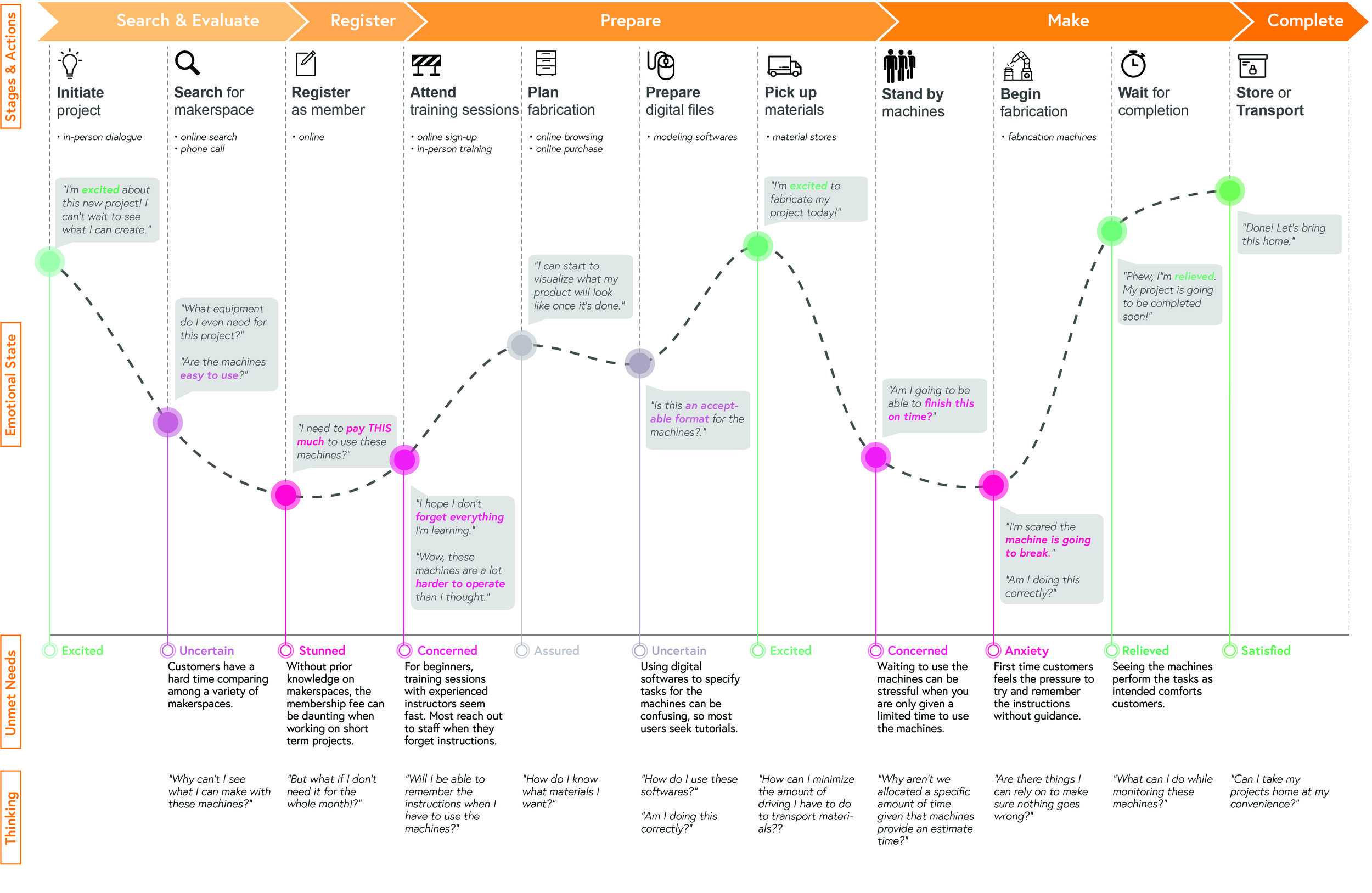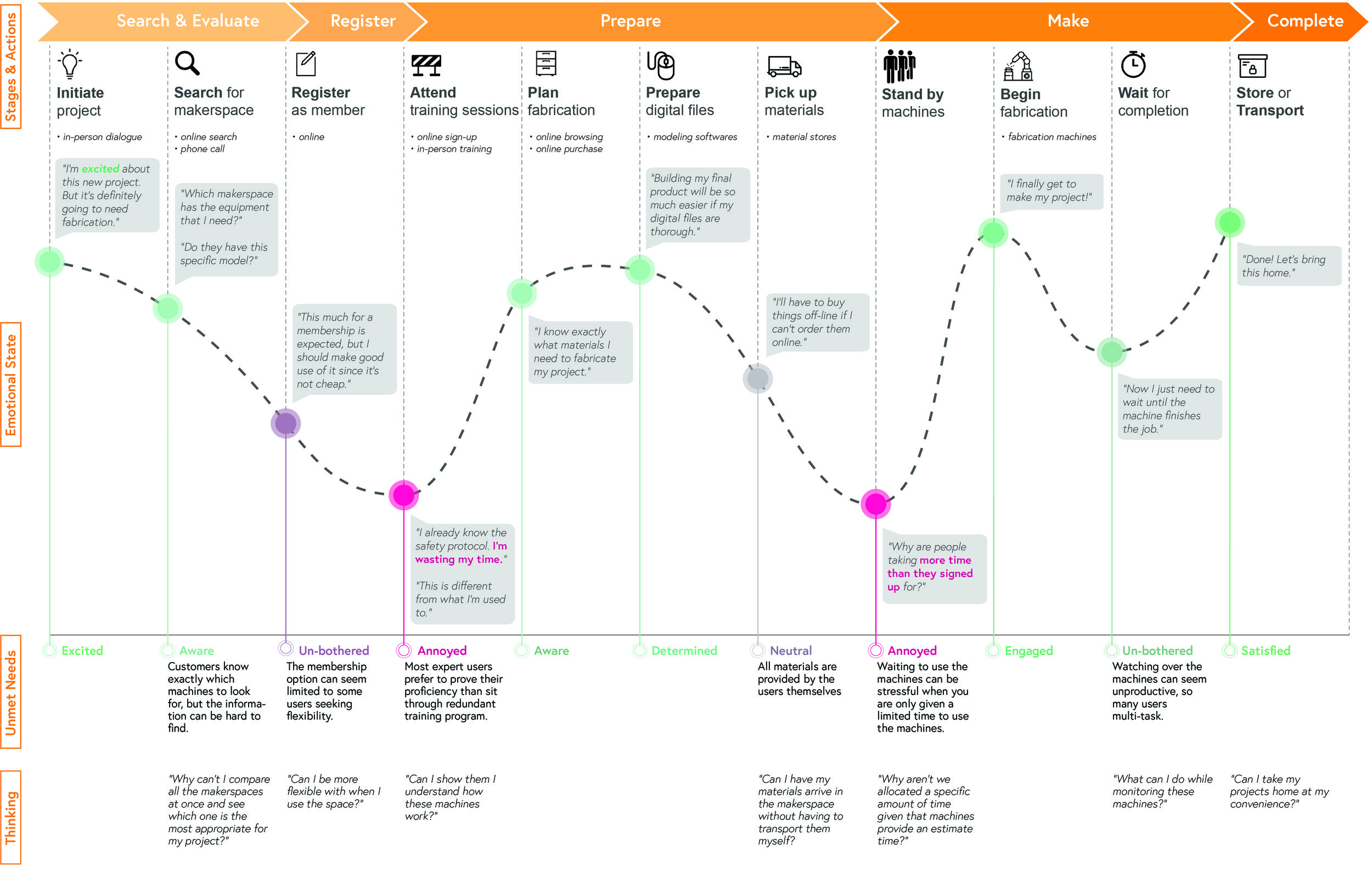Rethinking MakerSpaces
User Research, 2018, in collaboration with June Kim
Ecosystem | stakeholder | journey map | User Interview
Costly equipment.
Limited space.
Growing membership.
MakerSpaces: where fabricators collaborate and manifest their creativity in a shared space equipped with tools and machines that are often expensive and difficult to maintain for individual makers.
They are a notoriously difficult business to manage, often relying solely on costly membership fee. This research focuses on contextualizing the unmet needs within the Supply and Tool Sharing domain. To kick it off, we reached out to two local non-profit organizations- ProtoHaven (below) and HackPGH, who remained as our collaborators throughout the research.
Utilizing data from our preliminary interviews, We established a Domain Ecosystem within the scope of our research.
Staging our research like a play, we identified and compartmentalized different components in order to structure and better understand the fabrication industry and the different challenges it faces.
A thorough examination of all Stakeholders helped us deconstruct the unmet needs even further.
The “end-users” of makerspaces, the makers, are separated into two categories based on their experience level which greatly impacts the user journey.
This survey relies heavily on our phone/in-person interviews with different stakeholders. After gathering our data, we discovered what made each stakeholder unique by identifying their Needs, Goals, and Tasks.
We created a Customer Journey Map for each stakeholder to visualize their pain points at various stages.
Identified problems experienced by makers include limited membership options often with monthly intervals, inefficient equipment and machine reservation that prolongs wait time, and mandatory safety training that may be redundant for experienced users. Since makers are separated into experienced users who may work on more complicated projects that span over the course of several months, and inexperienced users who experience these tools and machines for the first time and tackle small-scale projects that take a shorter time to complete, a variety of membership options is important to them. Inexperienced users wish to visit the site over the weekend or when they’re not working to complete a project within a day may not wish to purchase a one-month membership as their visit is infrequent. However, for both makerspaces investigated, monthly membership is the only option. For time-sensitive makers as well as those with limited access, unavailability of machines poses a huge inconvenience due to wasted time and money. Existing online registration systems are not satisfactory as there are still instances when machines are unavailable. Lastly, mandatory safety training, though helpful for inexperienced users, can be redundant for experienced users who have previously worked at other makerspaces or have expertise in the maker domain.







